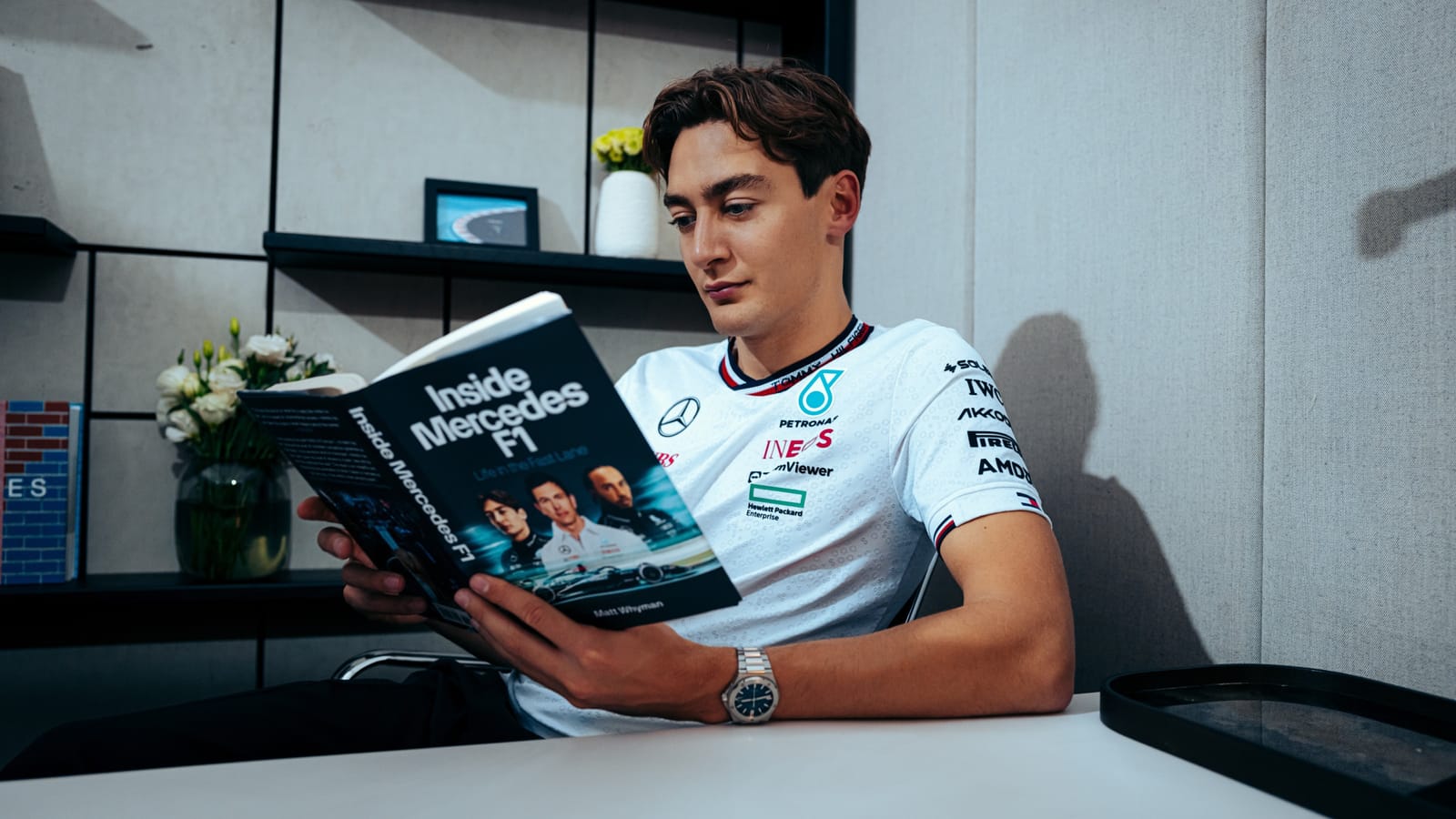

Lewis Hamilton won six Formula 1 drivers’ championships for Mercedes, so when Toto Wolff was told of his decision to move to Ferrari it must have felt like the team was losing one of its biggest assets.
No wonder we’ve since seen them throw the odd stone at each other, such as Wolff’s comments about Hamilton’s “shelf life” in the new Inside Mercedes F1 book and Hamilton’s remarks about the car lately.
The last three seasons have been difficult for Hamilton. Mercedes has dropped the ball repeatedly with the three cars it has produced under the ground effect regulations, which will have been hard to take. Hamilton has questioned his own talent and even admitted last year that he’d asked himself if he’d lost it. Those doubts can only have grown after this difficult year.
Every year, when the new Mercedes was launched, Hamilton was promised it was the dawn of a new era. But that never really happened, as although 2024 has been better than '22 or '23, in reality that’s as much because Red Bull has gone off the boil as Mercedes has improved.
As Hamilton said in Brazil, there’s nothing left to fight for this season with the team a distant fourth in the championship.
MY EXPERIENCE OF LOSING DRIVERS
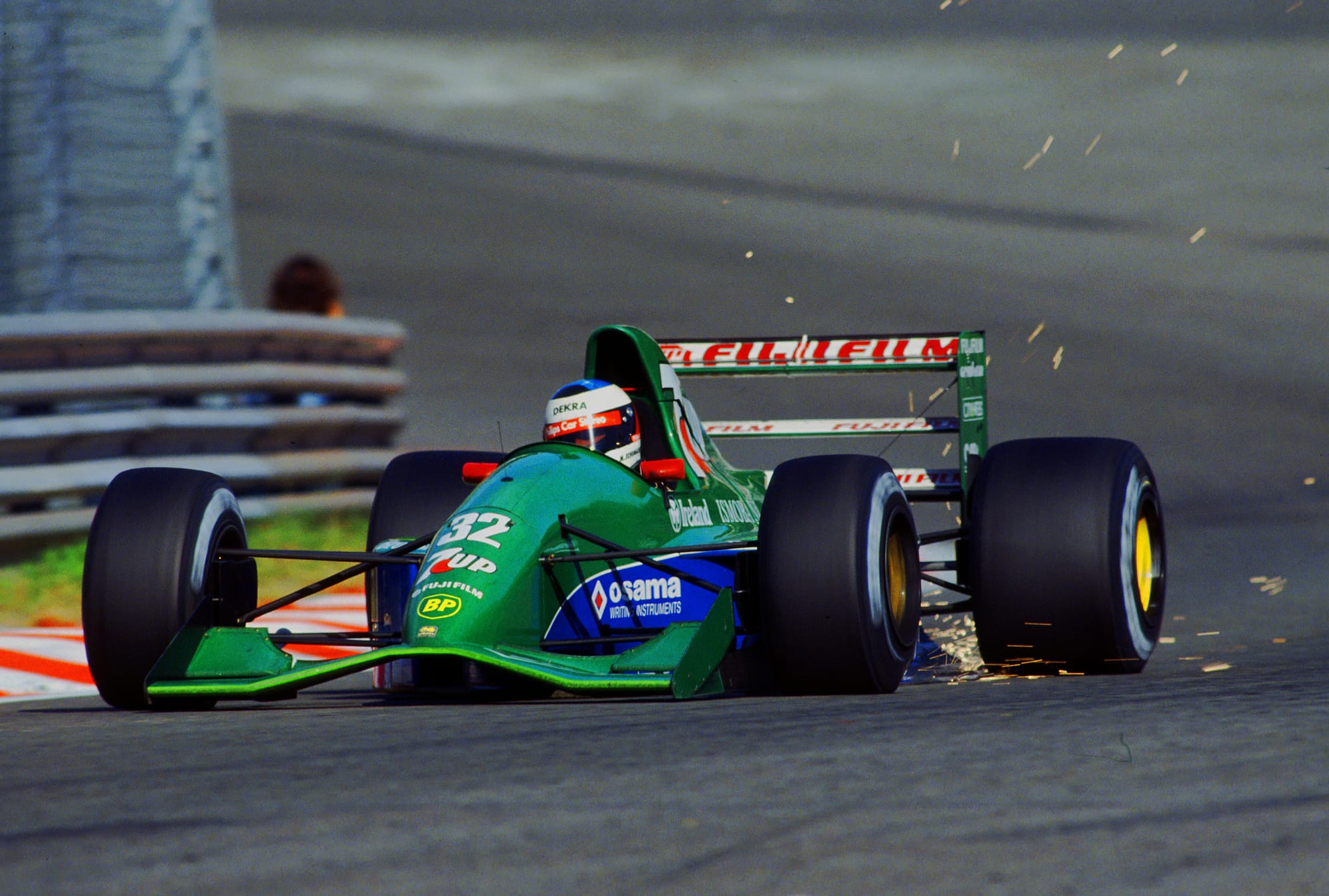
During my career working for teams in F1, we had plenty of driver changes so I’ve got plenty of experience of losing drivers to another team. In reality, most of them were money-oriented and, in the case of Jordan, eponymous team owner Eddie was always open to making a fast buck so no good offer was refused.
We were never really a frontrunning team like Mercedes, but we always had high hopes. Our first real experience of losing a driver was when Michael Schumacher made his debut for us at Spa in 1991 only to disappear to Benetton for the next race despite having what we thought was a long-term deal.
This was hard to take for everyone in the team as we immediately realised what a talent he was. However, looking back it’s clear Jordan could never have given him the same opportunities that his move to Benetton opened up for him given he won his first championship just three years later.
Sometimes, there are positives from these changes and I always looked for them. I remember speaking to Michael at Suzuka at the end of 1991 about the differences between the Jordan 191 and the Benetton B191. He said the Jordan was better and nicer to drive in the fast corners, but the front end wasn’t so good in the slow stuff. So that was something positive for me to work on.
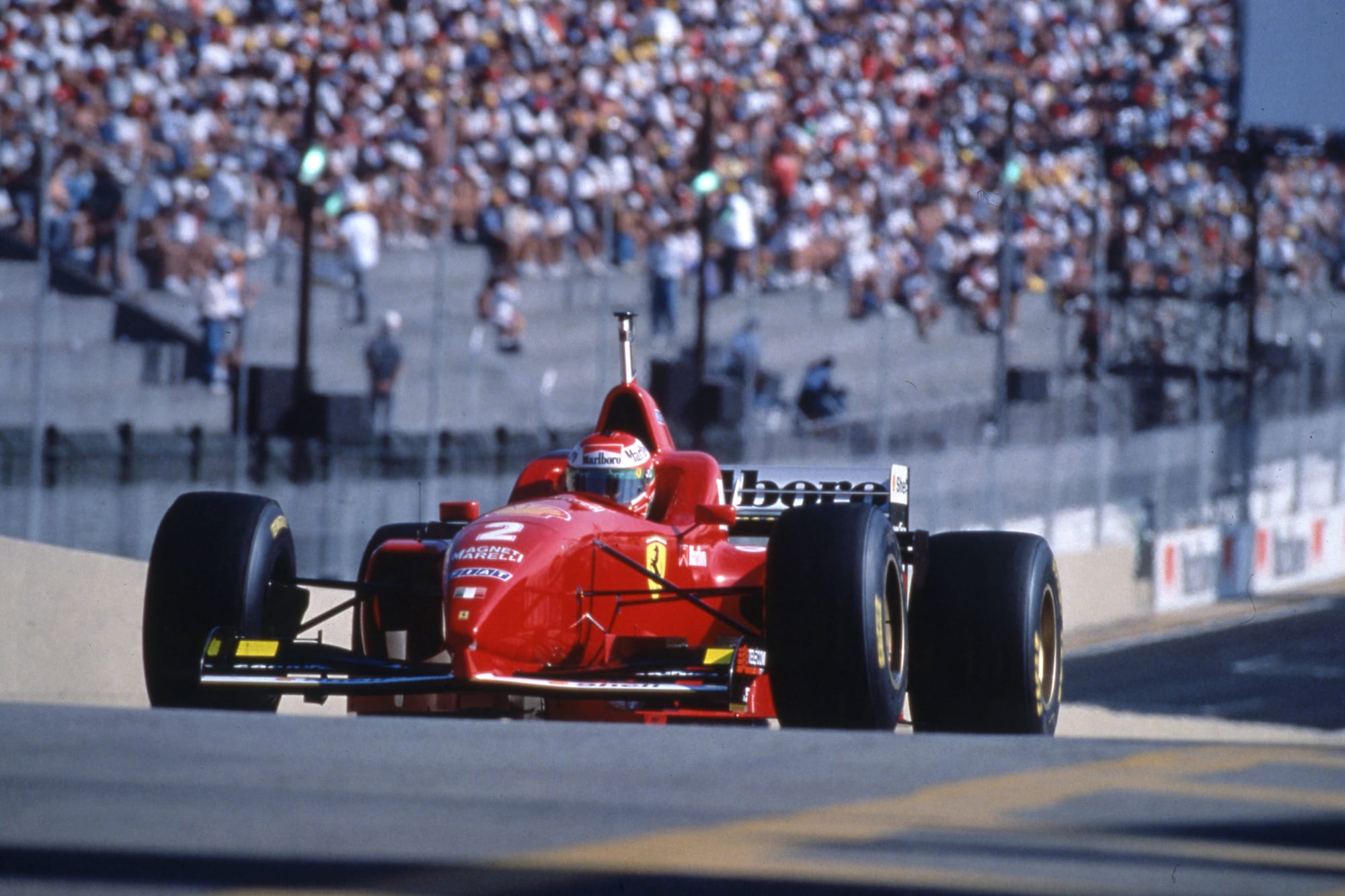
The second time this happened to us was when Eddie Irvine left at the end of 1995 to go to Ferrari. That was a big-money deal for both Eddies so there was no point in worrying about it. Besides, I couldn’t complain about a fellow Irishman getting the opportunity to race for Ferrari even if it was only as number two for Schumacher, who had also joined Ferrari for 1996 with what seemed like half of the Benetton engineering team ultimately following him.
Again, I spoke with Eddie for his experience of the comparison between the Jordan and Ferrari cars. He felt they were similar, but that Ferrari was strong in terms of workforce. He also compared the gearchange feel, describing Ferrari’s as like a truck gearchange in comparison. Every change gave him a headache as his head banged the headrest!
A MISSED CHANCE WITH BARRICHELLO
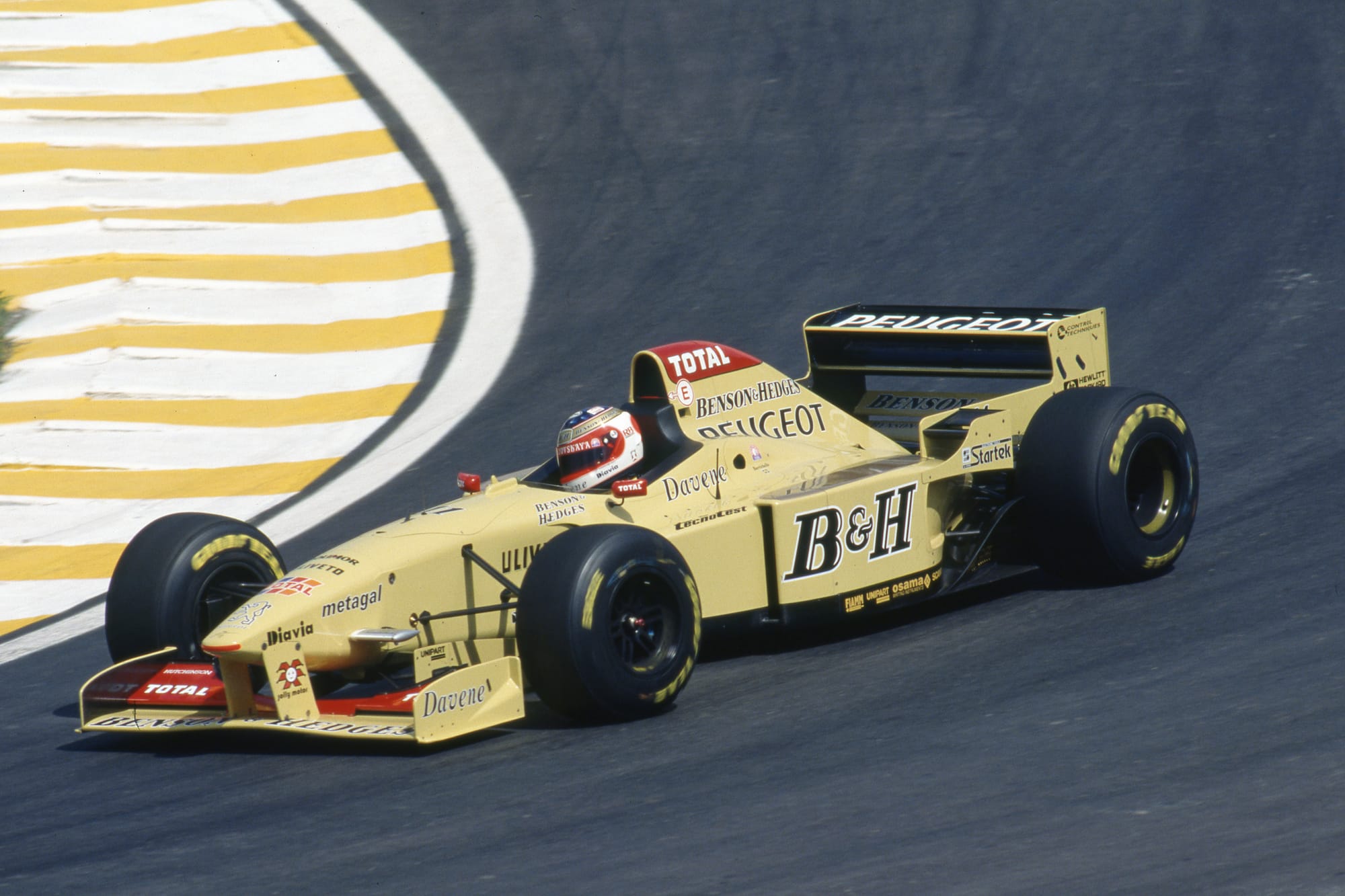
A year later, we lost Rubens Barrichello to Stewart Grand Prix at the end of 1996. This one disappointed me as I consider Rubens as one of my best friends and enjoyed working with him, he actually called me his second father.
He gave very quick and concise technical feedback over the radio, making it easy for us to decide on changes even before he’d got back to the pits. Unfortunately, we didn’t give Rubens the car to show his true talent in 1996. Given Jackie Stewart’s negotiation skills, which I learned about later in my career when I joined his team, it was no surprise that Rubens left.
Relive the whole 1997 F1 season with F1 1997 Revisited - a Bring Back V10s spin-off podcast series exclusive to The Race Members' Club
It would have been very interesting, and I’m pretty sure more successful for him, if he had stayed with Jordan in 1997. Together with Peugeot, we produced a strong package that should have won a couple of races, or perhaps more, given it would have suited his fingertip-control style of driving.
While Rubens had plenty of experience under his belt by that time and we might just have benefitted from the car sooner, we still had two competent drivers in Giancarlo Fisichella and Ralf Schumacher. Both would go on to win races later in their careers but they were right at the start of those careers when they were with us.
Fisichella, who had eight races for Minardi the previous year under his belt, replaced Barrichello for 1997. He was very talented with a similar fingertip driving style to Rubens, which meant he suited the car very well.
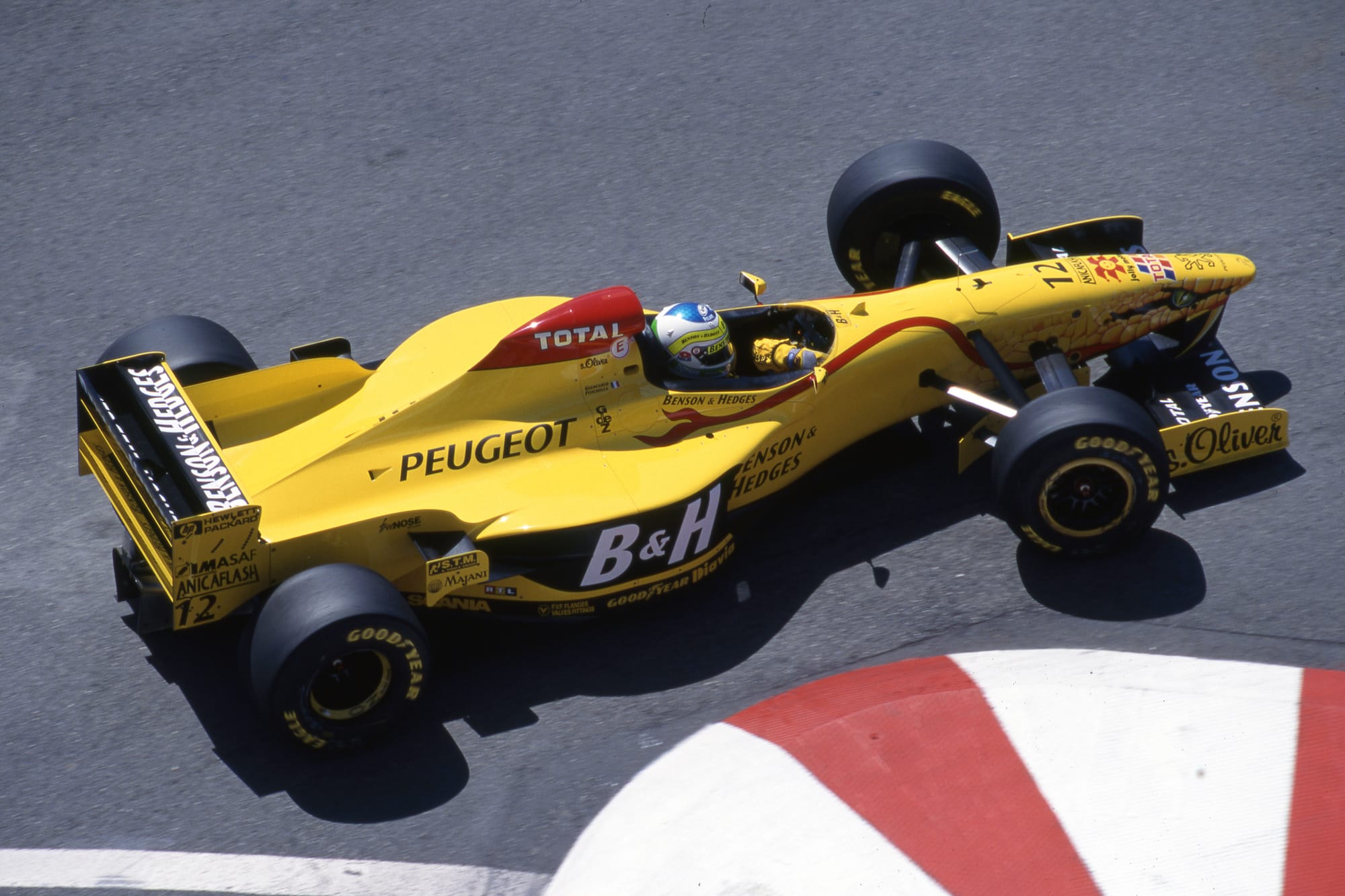
Unfortunately, the collision between him and Ralf Schumacher in Argentina, which perhaps cost us a win given they were both on one-stop strategies, put paid to any form of relationship between the two.
Jordan became a split team, which is never good for a development direction. They were also very different drivers as Ralf was more of a white-knuckle driver and every car input was aggressive. In that regard, it was similar to the comparison between Barrichello and Irvine.
We then lost Fisichella to Benetton at the end of 1997, which was a big opportunity for him given it was a big team that had won back-to-back world championships not long ago.
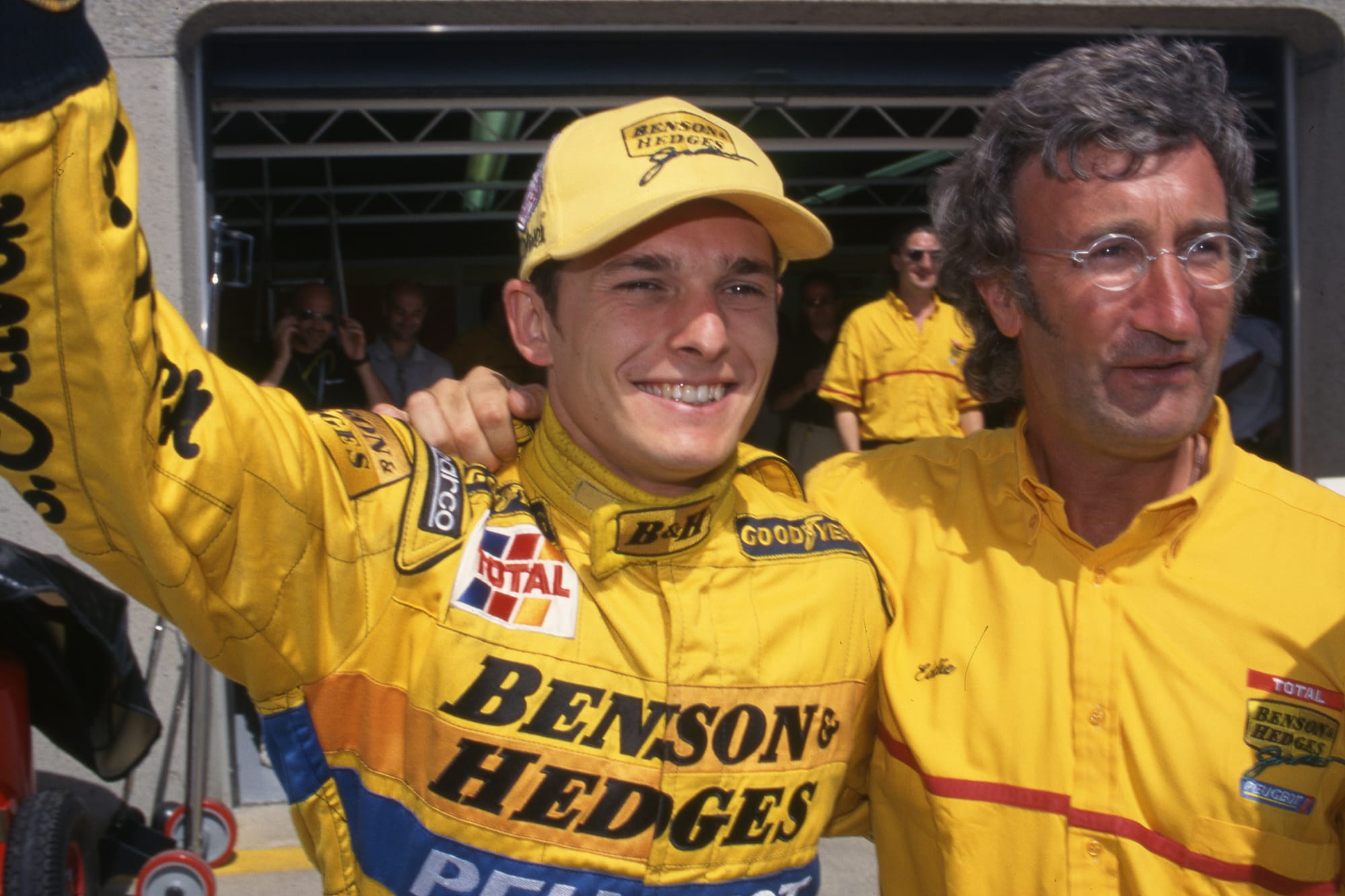
It was a sound move, as our change to Mugen-Honda engines which initially were no match for the Peugeot engines and the major technical regulations change tripped us up. It created an inherent car problem and it took until the British Grand Prix in the middle of the season to get parts on the car to address that deficit. That meant the first half of 1998 was disappointing, to say the least.
The management team at Jordan didn’t understand that changing engine suppliers and adapting to new regulations is not easy, especially for a small team, and that strength comes from sticking together, recognising your mistakes, rectifying them and learning for the future. That lack of understanding led to me leaving.
LOSING RUBENS AGAIN
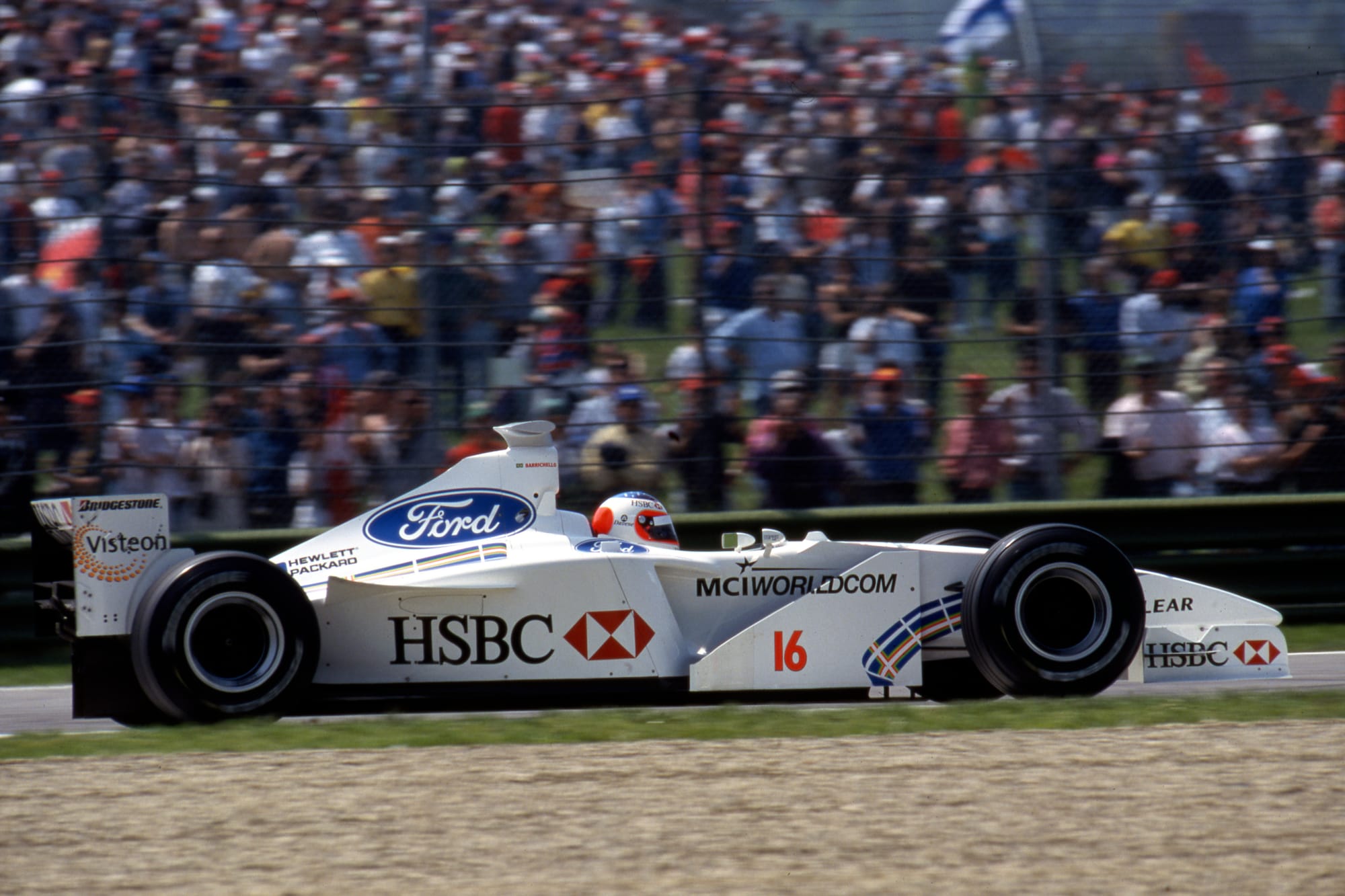
I joined Stewart at the end of 1988 for the 1999 season and teamed up with Rubens again. We had a decent car and a reasonably good season, taking pole position at Magny-Cours, and running at the front on occasions despite not winning a race. Johnny Herbert won the chaotic race at the Nurburgring, with Rubens third, to take the team’s one and only victory.
Then I lost Rubens again given he was lured to Ferrari for 2000. I understand it as he couldn’t refuse driving for Ferrari and with Jackie Stewart selling the team to Ford, which became Jaguar and the incoming management steering the team in the wrong direction, history proves it was the right decision.
Like Irvine, Barrichello was number two to Michael Schumacher, so his opportunity to become world champion was always going to be limited. He won nine races for Ferrari, but they usually came because Michael had a problem of one sort or another And Rubens wasn’t as comfortable with playing the number two role as Eddie had been.
KEEPING THE RELATIONSHIP GOOD TO THE END
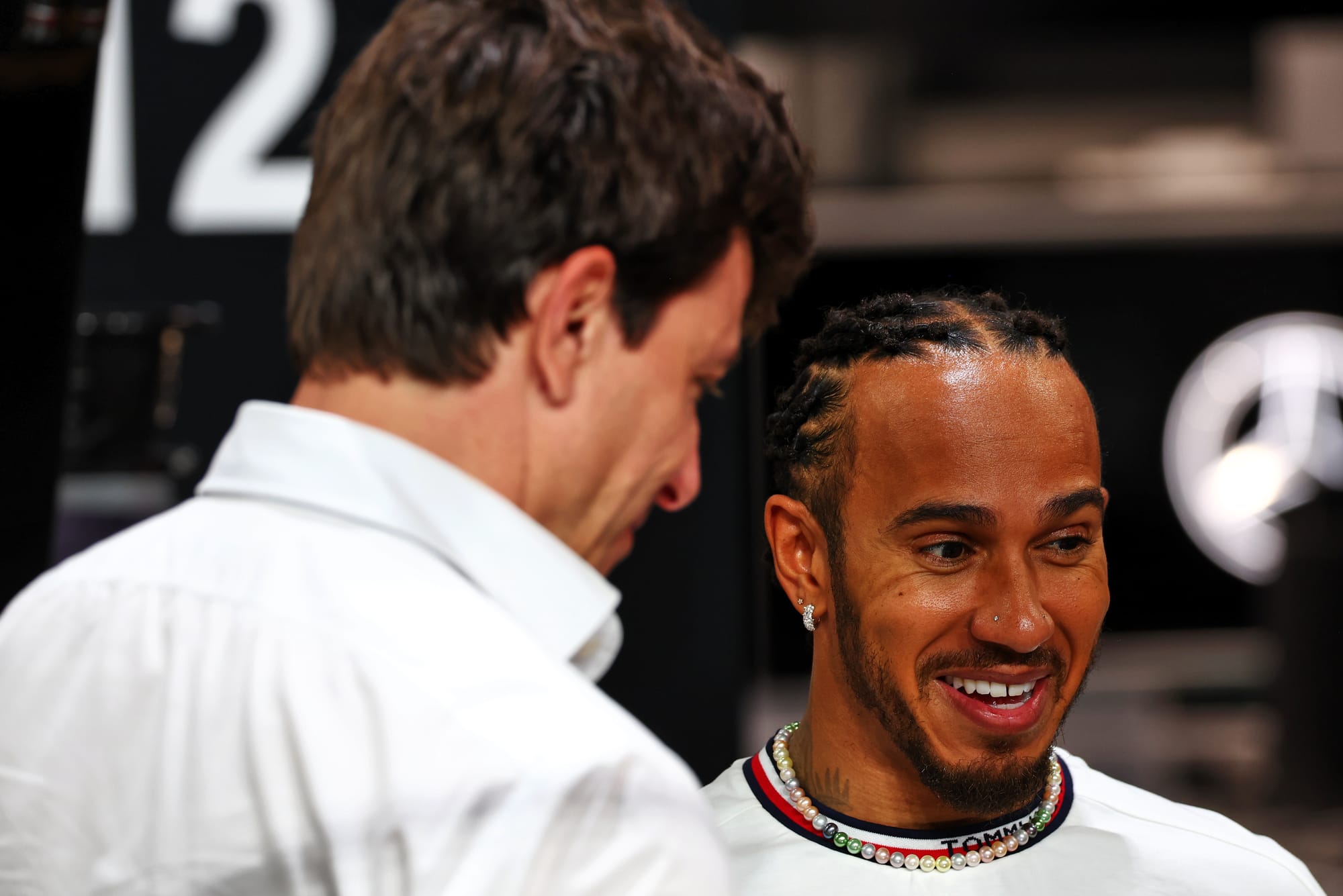
I never resorted to throwing stones at any of the drivers that left a team I was working for. They moved to better their careers and on most occasions it did just that, so I was proud to see them develop further.
I also never experienced something like what we’re seeing with Hamilton and Mercedes. Every driver I lost to another team kept pushing on to the end to achieve the best results possible for the team they were still at.
As they were moving to bigger teams and a potential better future, they still had plenty to prove and it was important that they showed their commitment and speed to the very end.
The circumstances are different at Mercedes now.
Any driver is only as good as their last race. Hamilton has admitted he can’t wait for the season to end so he can move on and that means he doesn’t expect any miracles to happen over these last three races. Fighting just to be in the points is not something that turns him on and it seems those two mid-season wins are as good as his 2024 will get.
But Wolff suggesting that Hamilton might be past, or approaching, his sell-by date is disappointing after all the lovey-dovey success they had over the last 12 seasons.
Time will tell if the right decisions have been made, as for both Lewis Hamilton and Toto Wolff 2025 is a big season.
For Hamilton, it’s about getting his feet under the table at Ferrari and proving to himself and the world that he can still be at his brilliant best up against a very fast, and well-established, team-mate in Charles Leclerc.
For Wolff, it’s a test of the support he’s given Kimi Antonelli - who he admits was always his first choice to take Hamilton’s seat in 2025 despite being only 18 years old.

